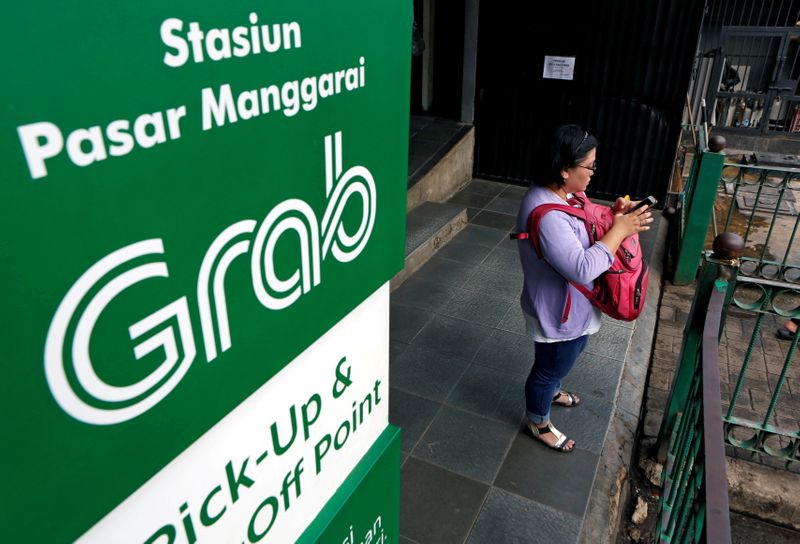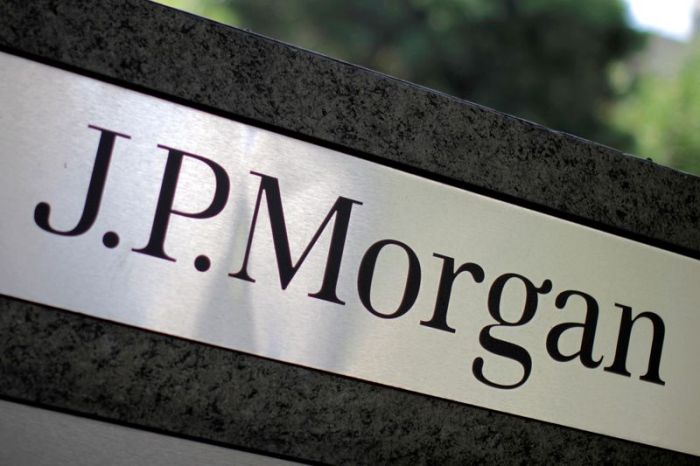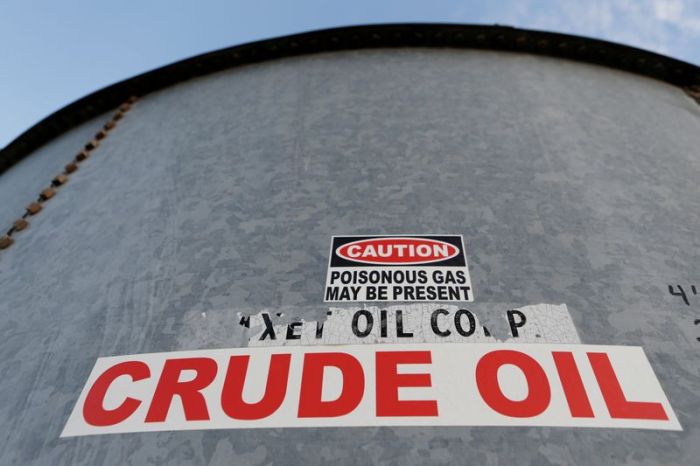SINGAPORE (Reuters) -Grab Holdings, the largest ride-hailing and food delivery firm in Southeast Asia, clinched a merger on Tuesday with special-purpose acquisition company Altimeter Growth Corp securing a valuation of nearly $40 billion and paving the way for a coveted U.S. listing.
The merger, the biggest blank-check company deal ever, underscores the frenzy on Wall Street as shell firms have raised $99 billion in the United States so far this year after a record $83 billion in 2020.
As part of Singapore-based Grab’s agreement with the SPAC backed by Altimeter Capital, investors such as Temasek Holdings, BlackRock, Fidelity International, Abu Dhabi’s Mubadala and Malaysia’s Permodalan Nasional Bhd will participate in a $4 billion private investment in public equity offering.
Funds managed by Altimeter Capital will lead the investment with $750 million.
“Institutional investors looking for Asian consumer internet exposure are keen to diversify their allocation beyond a handful of companies,” said Varun Mittal, head of emerging markets fintech business at consultancy EY.
Grab said its decision to become a public company was driven by a strong financial performance last year.
The transactions validate Grab’s co-founder Anthony Tan’s strategy of aggressively tapping growth in new sectors and ramping up market share by pumping billions of dollars to localise its services and invest in high-growth economies.
Tan told Reuters the funds will be used to double down on the last-mile delivery network and to bulk up its financial services business, such as digital bank and mobile payments.
The 39-year-old launched Grab as a taxi app in Malaysia in June 2012 with fellow Harvard Business School alumni Tan Hooi Ling, and then quickly took it regional.
The deals for Grab, which was valued at just over $16 billion last year, are a big win for its early backers such as SoftBank Group Corp and China’s Didi Chuxing.
Reuters earlier reported that Grab would announce the deal on Tuesday.
Altimeter Growth and Grab will become fully-owned subsidiaries of a new holding company, which is expected to be valued at $39.6 billion on an initial proforma equity basis.
“Southeast Asia is one of the fastest growing digital economies in the world, with a population approximately twice the size of the United States. Yet online penetration for food delivery, on-demand mobility and electronic transactions are a fraction of the U.S. and China,” said Brad Gerstner, founder and chief executive officer of Silicon Valley-based Altimeter.
The transactions will provide Grab with about $4.5 billion in cash proceeds.
The deals, which have been approved by the boards of both Grab and Altimeter Growth, are aimed to close by July.
“Grab is now synonymous with Southeast Asia’s exciting growth story,” said Greg Moon, managing partner at SoftBank Investment Advisers.
Grab attracted global attention in 2018 when it acquired Uber’s Southeast Asia business after a costly five-year battle in return for a stake in itself.
Reuters reported in January that Grab, which has so far raised about $12 billion, was exploring a U.S. listing. [L1N2JT0HC]
“For us, it was about depth, it is highly liquid, it is large with global names, global investors,” Tan said on why Grab choose the U.S. markets for a listing.
Grab’s agreed transaction will surpass electric vehicle maker Lucid Motors’ $24 billion deal struck with a SPAC in February.
BATTLEGROUND INDONESIA
With operations in eight countries and over 400 cities, Grab is Southeast Asia’s most valuable start-up.
Leveraging its ride-hailing business, it has moved into food and grocery deliveries, courier services, digital payments, and is now making a push into insurance and lending in a region of 650 million people.
The listing will give Grab extra firepower in its main market of Indonesia, where local rival Gojek is close to sealing a merger with the country’s leading e-commerce business, Tokopedia.
Grab is also facing more competition from cash-rich, U.S.-listed Sea. Both Grab and Sea won digital bank licences in Singapore last year.
Grab, whose net revenue surged 70% last year, has yet to turn profitable. The food delivery segment became its biggest business as more consumers shift to online food delivery after the pandemic.
Grab reported adjusted net revenue of $1.6 billion in 2020 and forecasts this to rise to $4.5 billion in 2023. It expects to turn positive on an earnings before interest, taxes, depreciation, and amortization basis in 2023.
Evercore was the lead financial advisor to Grab on the deal and JPMorgan and Morgan Stanley were co-advisors.
(Reporting by Anshuman Daga; Additional reporting by Aradhana Aravindan; Editing by Muralikumar Anantharaman, Mike Harrison and Steve Orlofsky)

























